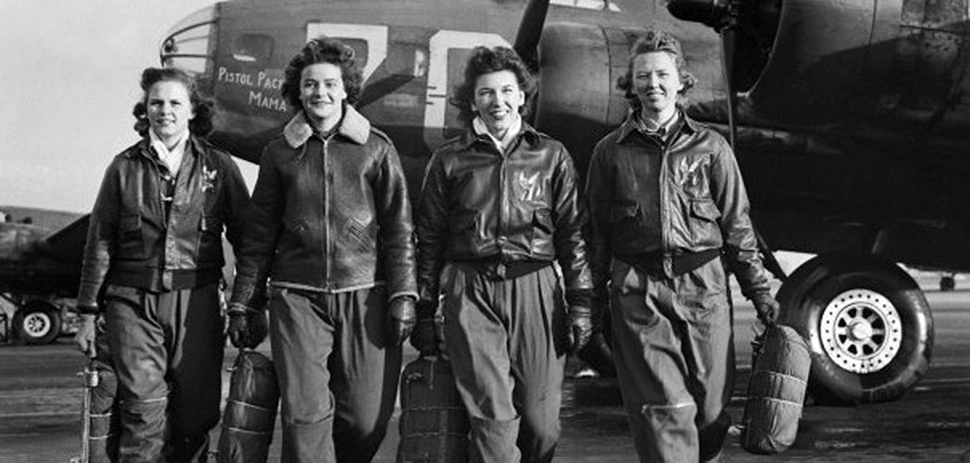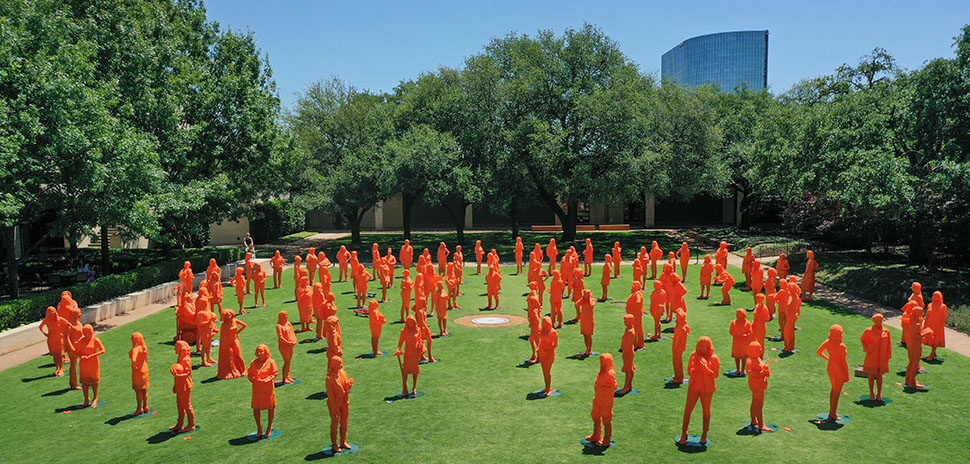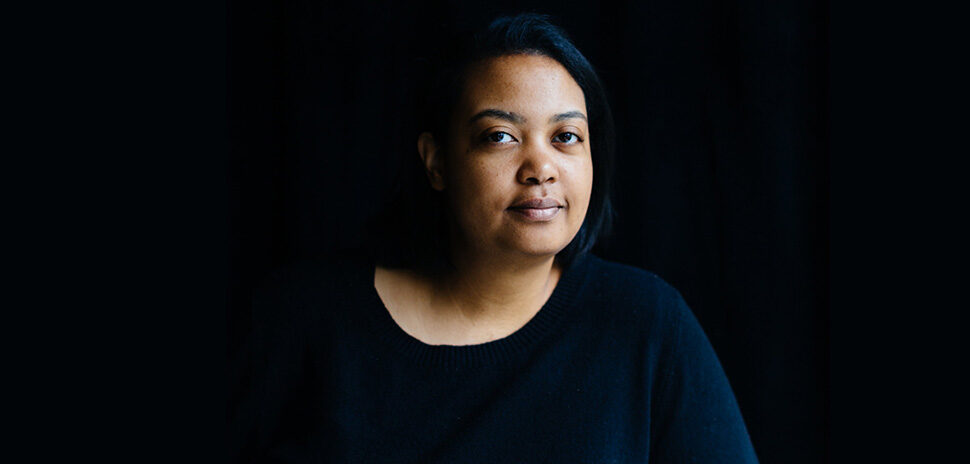Fox 2000, the company behind the recent Oscar-nominated film Hidden Figures, is planning to shed cinematic light on another group of women largely lost in history — and this story has North Texas roots.
The Women Airforce Service Pilots of World War II were the first female pilots to fly for the U.S. military. For the last two decades, Texas Woman’s University professor Katherine Sharp Landdeck has dedicated her life to learning about the women and their service to the country.

Katherine Sharp Landdeck
Her research, which she is compiling into an upcoming book, The Women with Silver Wings, could soon become a major motion picture.
Last week, Fox 2000 announced plans to adapt the book into a feature film directed by Hamilton’s Thomas Kail and produced by Anonymous Content’s Michael Sugar, who won an Academy Award for his work on the journalism drama, Spotlight. Kate Sullivan of Old 320 Sycamore production company also will join Sugar on the project.
“I talked to everybody [Wednesday] and they are looking for screenwriters, so I really think it’s going to happen. It’s pretty exciting news,” Landdeck said in an interview with Dallas Innovates.
Landdeck will be a producer on the film and work with screenwriters to ensure the women’s stories are told truthfully.
“I told them, ‘I don’t know anything about movies, but I know many things about these women and historical accuracy,’” said Landdeck, who serves as an associate professor of history at TWU in Denton.
Filming could begin as early as next year, according to the university.
‘WOMEN WITH SILVER WINGS’
From 1942-44, more than 1,000 women volunteered as part of the new Army Air Forces program. The WASP initially called the Howard Hughes Municipal Airport in Houston home, but in 1943 transferred to Avenger Field in Sweetwater.
They’d later be stationed at 120 Army air bases throughout the U.S., where the women took on domestic flying duties such as ferrying planes to embarkation and helping to train ground and air gunners on firing at moving targets.
Landdeck’s research dates to 1993, when she met a WASP member while attending an airshow.
“I had never heard of them and nobody I talked to had ever heard of them,” she said. “It just seemed wrong. So, I’ve made it my life’s work to tell their story.”
“I think even beyond the flying, these women persevered.”
Katherine Sharp Landdeck
Her book, which is scheduled to be published next year, will chronicle the pioneering women from before the war up to last year, when WASP members were officially granted burial rights at Arlington National Cemetery.
During their service, the women were classified as civilian pilots. After decades of lobbying from WASP and its supporters, the women received veteran status in 1977.
In 2010, the WASP were officially awarded the Congressional Gold Medal. Landdeck stood by surviving members at the ceremony in Washington, D.C.
“I think even beyond the flying, these women persevered,” Landdeck said. “They wanted to learn to fly, and they did. They wanted to serve their country, and they did. And, they wanted to be recognized and remembered for their service — especially for the 38 that died — and they did.”
NEVER FORGOTTEN AGAIN
Landdeck believes the WASP’s small numbers and the fact that they weren’t heavily promoted during WWII contributed to their stories being lost in history.
“Everyone was doing their part. After the war, they were just forgotten,” she said.
It wasn’t until recently that Landdeck has seen mention of the women in history textbooks.
But, students and other scholars have been able to learn about the women for decades on TWU’s campus, where the national WASP archives are held. Since 1993, the university has been collecting hundreds of oral histories, letters, diaries, official papers, uniforms, and thousands of photographs that document the service of the women.
“It’s really a hidden gem that we have right here in North Texas,” Landdeck said.
“I hope that nobody ever forgets these women again.”
Katherine Sharp Landdeck
Now ages 94 and older, the numbers of living WASP have dwindled to fewer than 100, Landdeck estimates.
Landdeck has watched the women change over the years, but she said one thing has remained the same — their passion for flying.
Last summer, she had the opportunity to fly in a B-25 bomber and a B-29 bomber with some of the women. She said being around the WWII airplanes took them back in time.
“They just glow when they get out of them. It’s like they’re 20 years old again,” Landdeck said.
With the upcoming film, she hopes others will learn of their contributions and be inspired by their determination.
“I can’t wait to see how it turns out and I hope that nobody ever forgets these women again. That’s the goal,” Landdeck said.
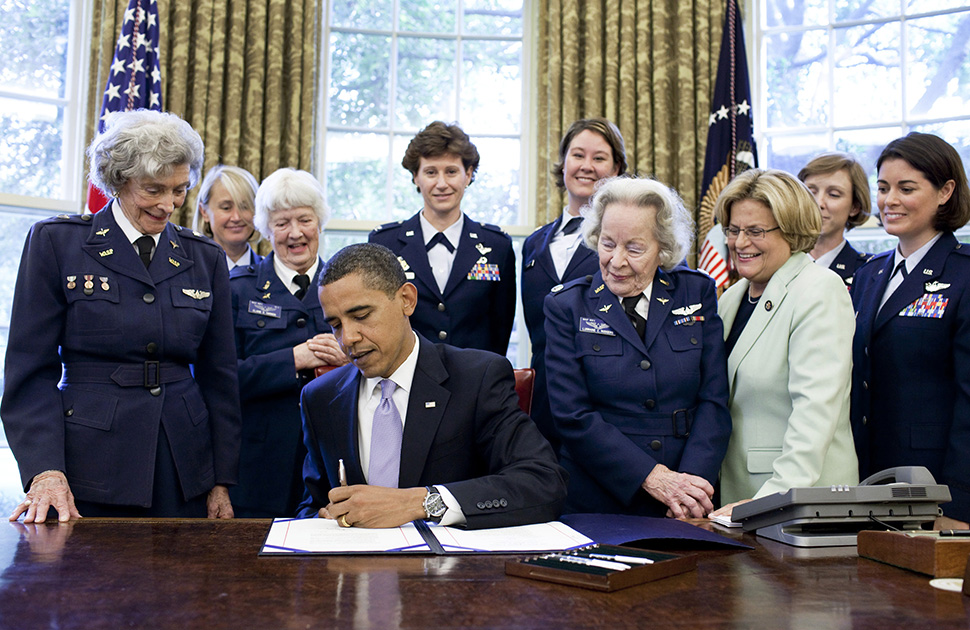
President Barack Obama signs S.614, a bill to award the Congressional Gold Medal to WASP in the Oval Office July 1, 2009. (Photo courtesy of White House Archives/Pete Souza)
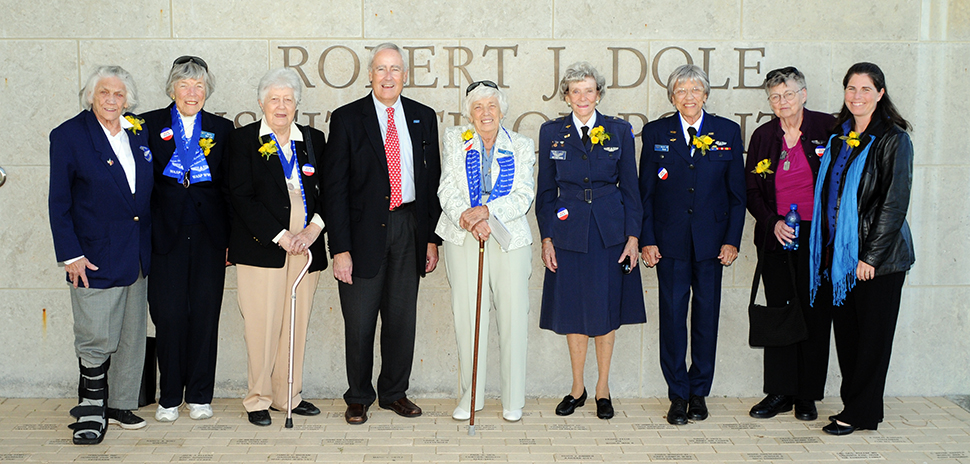
WASPs Millicent Young, Dawn Seymour and Lucille Wise, Dole Institute Director Bill Lacy, WASPs Jean McCreery Bee Haydu, Betty Jo Reed and Thelma Miller, and TWU Associate Professor Kate Landdeck at the Robert J. Dole Institute of Politics at the University of Kansas in Lawrence. The WASP were awarded the Bob Dole Leadership Prize on Oct. 3, 2010. [Photo courtesy of the Dole Institute of Politics]
Delivering what’s new and next in Dallas-Fort Worth innovation, every day. Get the Dallas Innovates e-newsletter.

